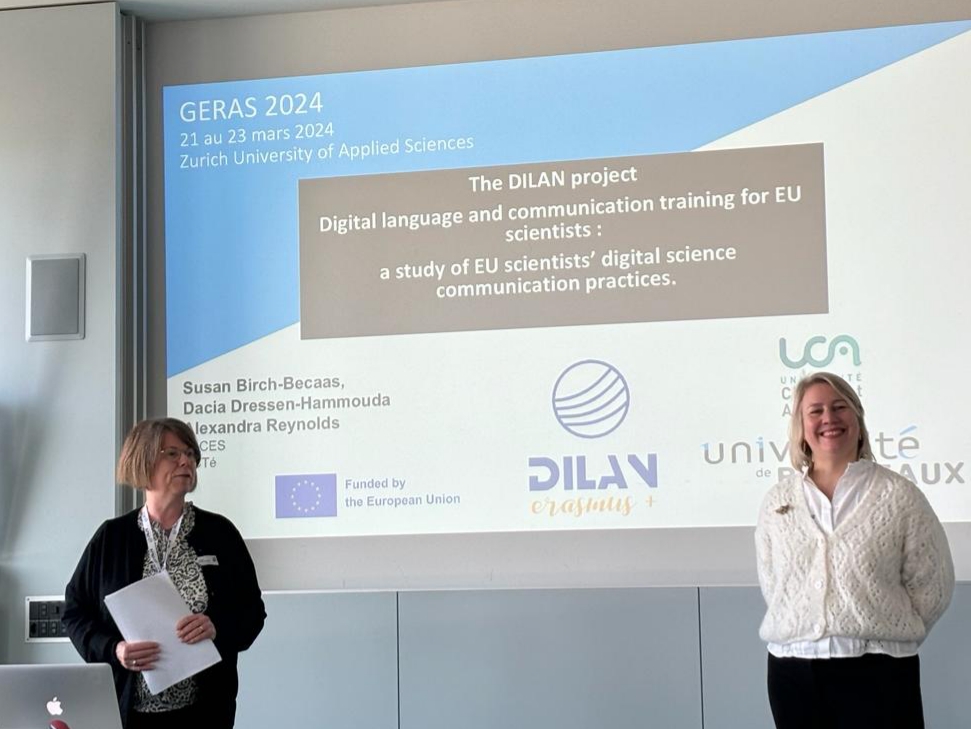This week the 45th GERAS International conference takes places in Zurich, Switzerland, where P3 from U. Bordeaux and P2 from U. Clermont are presenting the DILAN Erasmus+ project to an international audience.
On March 22, our colleagues Susan Birch-Bécaas, Dacia Dressen Hammouda and Alexandra Reynolds have delivered their presentation “The DILAN project (Digital Language and communication training for EU scientists): a study of EU scientists’ digital science communication practices” at the GERAS Conference. This conference is organised by the French Association of English for Specific Purposes that this year revolves around the topic of “Language use in specialized contexts: New perspectives on research in English and French as specialist languages”.

Abstract
The domain of science communication has evolved rapidly in recent years. Researchers continue to publish research articles and communicate their results to their peers in their global scientific discourse community via conference presentations. However, the emergence of digital genres such as blogs, video abstracts and academic social networks has also laid the focus on multimodal skills, effective communication and the use of English as a lingua franca. Indeed, many recent studies have investigated the linguistic and multimodal features of these genres and their communicative purpose (Belcher 2023, Luzon & Perez-Llantada 2022, Rowley-Jolivet & Carter-Thomas 2023). In addition, researchers are also increasingly encouraged to share their science with the wider lay public as the democratisation of science becomes a key societal priority. A previous quantitative study by the Campus Iberus consortium and its international partners examined the attitudes of researchers to various genres and the choices they make when communicating their findings (Perez-Llantada et al 2022, Birch- Becaas et al 2023). Such knowledge can contribute to a better understanding of the training needs of our Masters and PhD students as well as more experienced researchers.
The aim of the DILAN erasmus+ project (Digital language and communication training for EU scientists) is to develop digital resources to better enable scientists to communicate their research work not only to their peers but also multidisciplinary and wider, non-specialist audiences on digital media.
At the end of this first year of the project, our objective here is to report on the results of our ethnomethodological study. Interviews and focus groups were conducted with scientists across 4 countries to obtain qualitative data on their digital science communication practices and their uptake of and attitudes towards these new affordances. The aim was to identify training needs, good practices and create video testimonials. In the second phase of the project, the results obtained will inform the design of an online training course and a virtual resource hub. It is hoped that these professional development resources will go some way to helping STEM and non-STEM scientists to better communicate their science to society.
📢 Follow our updates on Instagram, Facebook, Twitter and LinkedIn
